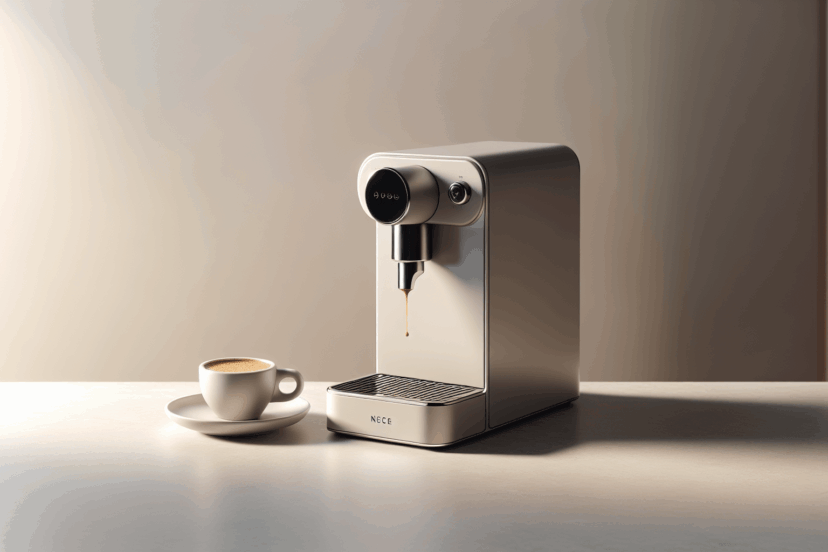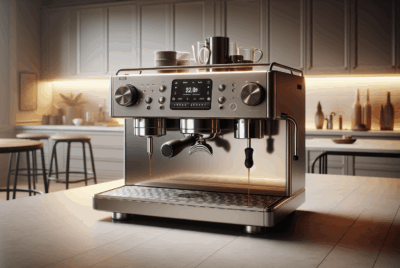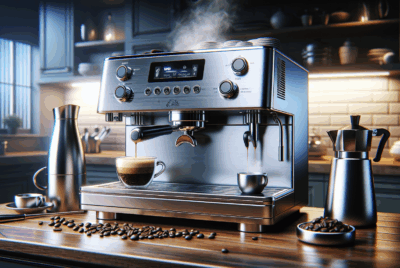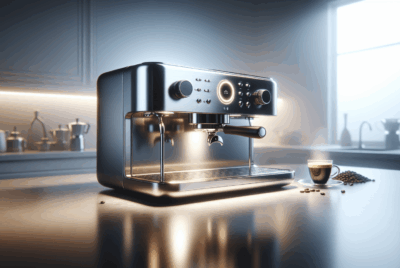The Ultimate Guide to Choosing a Compact Espresso Machine
As an Amazon Associate, I earn from qualifying purchases, at no additional cost to you. Disclaimer
Have you ever stood in a friend’s kitchen, watched them brew a perfectly thick espresso shot from a machine that barely takes up any counter space, and thought to yourself, “I need one of those,” but have no idea where to start? You’re in the right place. Choosing a compact espresso machine can be an odyssey through the world of coffee, teeming with engaging design, precise engineering, and diverse options suitable for every kind of home barista. I know how overwhelming finding a good machine can be, so let’s break it all down together.
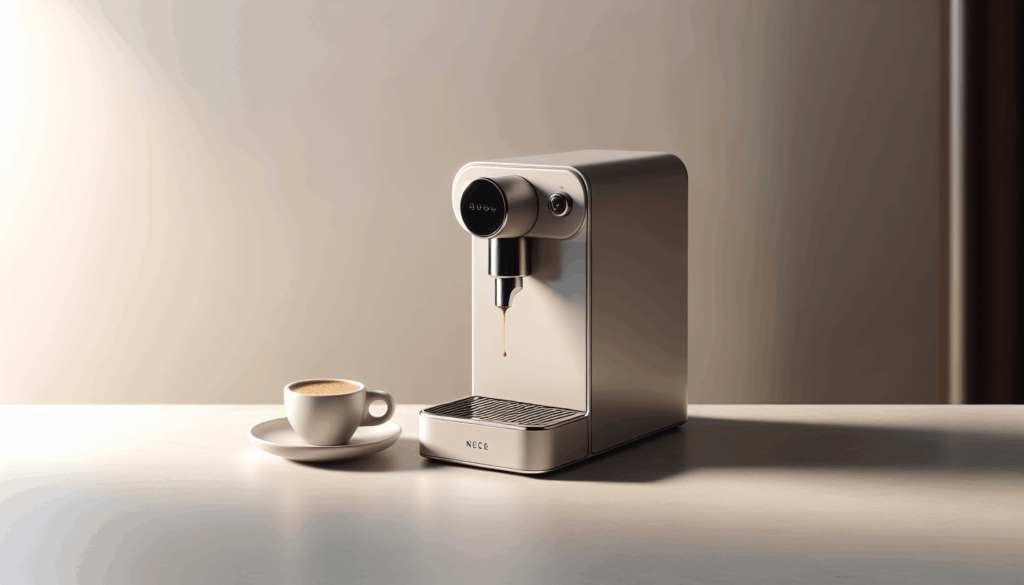
Explore the Best Espresso Machines
Understanding Your Coffee Needs
What Kind of Coffee Drinker Are You?
Before jumping into the specifics of espresso machines, take a moment to reflect on your own coffee-drinking habits. Are you an enthusiast who treats coffee brewing as an art form, or do you just need a quick caffeine boost to kickstart your day? Answering this will help you establish what features and complexities might be suitable for your machine.
Frequency of Use
One major consideration is how often you expect to use the machine. For daily and multiple uses per day, a durable and easy-to-clean model might be crucial. If you’re an occasional drinker, a simpler, less expensive option might suffice.
Types of Espresso Machines
Let’s explore the main types of compact espresso machines, and we’ll detail their uniqueness, complexity, and usefulness.
Manual Espresso Machines
These machines demand a hands-on approach. You control each step, from grinding and tamping to controlling the brew time. As a purist’s choice, they allow for incredible exploration and customization. However, they require practice to master. If you treasure the process and ritual of making coffee, a manual may be for you.
Semi-Automatic Espresso Machines
Offering a mix of control and automation, semi-automatic machines are popular among everyday users. You have control over grind size, tamping pressure, and the start-and-stop of extraction while the machine manages brewing pressure. It’s a middle ground for those who like some involvement in the process but still want a consistent espresso.
Automatic Espresso Machines
Automatics take more control, managing most of the brewing process for you. These machines are great for those who appreciate consistency and convenience. By pressing a single button, the machine will grind, tamp, and brew the espresso for you. Perfect if you prefer speed and reliability over customization.
Super-Automatic Espresso Machines
Super-automatics are the luxury option, offering complete convenience with no sacrifice to quality. They perform all steps at the push of a button. They’re perfect for high-demand households or offices where nearly instant coffee is expected. While they tend to be more expensive, their ease of use and speed can be unparalleled.
Consider Your Space
With a compact machine, making the best use of limited space is your top priority.
Kitchen Counter Size
Measure your available counter space before making a purchase. Remember to account for room needed to access water tanks and bean compartments. A machine that’s too large can become a daily frustration instead of a delight.
Weight and Portability
Consider whether you need the machine to be portable, especially if you have a small kitchen and plan to move the machine around frequently. Lighter machines may offer more mobility, but heavier models might provide stability and robustness.
Key Features to Look For
Boiler Type
Single boilers are common in compact machines, which means you can’t brew and steam milk simultaneously. Dual boilers allow for this convenience but may compromise on size. Your choice will depend on how important simultaneous brewing and frothing is for you.
Pump Pressure
Look for machines that deliver at least 9 bars of pressure. This is essential for extracting the full flavor and aroma from the beans. High pressure ensures a richer and more detailed espresso.
Built-in Grinder
Having a built-in grinder can save space, but it often means compromising the grinder’s quality. Consider whether you prefer having a separate grinder and whether space permits it.
Water Reservoir Size
Think about capacity relative to your daily use. Larger reservoirs minimize frequent refills, but they also take up more space. Smaller reservoirs suit those who brew fewer cups throughout the day.
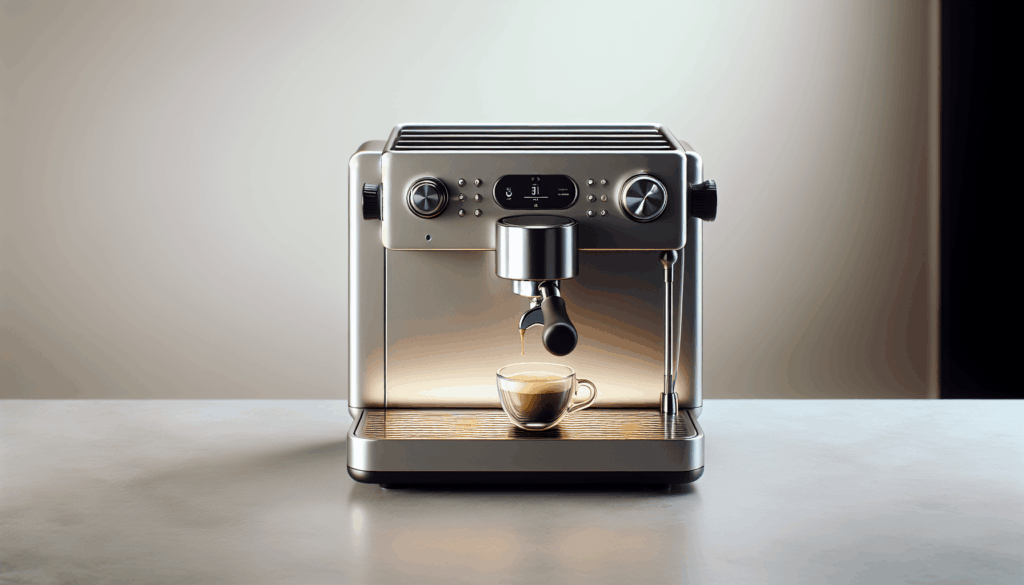
Milk Frothing Options
Steam Wands vs. Automated Frothing
Steam wands provide flexibility and precision for milk-based drinks, ideal for those who wish to practice and perfect their technique. Automated frothing options might sacrifice a bit on customization but offer convenience, saving time especially during busy mornings.
Frother Maintenance
Evaluate how easy the frothing system is to clean. Steaming milk leaves residues that can build up, affecting performance and hygiene over time.
Budgeting for Quality
Entry-Level Options
Less expensive machines might offer fewer features but provide a solid foundation for crafting espresso at home. They’re usually smaller and simpler, ideal for beginning baristas or those seeking no-frills efficiency.
Mid-Range Options
These machines typically provide the best combination of control, convenience, and cost. Offering more advanced technology and additional features, they strike a nice balance between quality and price, suitable for serious enthusiasts.
High-End Options
High-end machines are for those who see coffee brewing as both a science and an art. You’ll find top-notch build quality, cutting-edge features, and exceptional consistency in these models, but expect to invest significantly for the luxury.
Brands to Consider
Breville
Known for their durable build and user-friendly interfaces, Breville machines are often a favorite among both beginners and seasoned pros. They balance design with functionality, offering a range of options from entry to premium.
De’Longhi
De’Longhi offers diverse models known for reliability and style. Their machines often feature user-friendly designs and are available across various price points, making them accessible for every coffee lover.
Nespresso
While primarily known for capsule coffee, Nespresso also offers some compact models that deliver classic espresso tastes with the simplicity of a pod system. This ensures quick, mess-free brewing, perfect for busy individuals.
Maintenance and Care
Regular Cleaning
Keeping your machine clean is essential for long-term performance. Simple daily actions like wiping down the steam wand and emptying the drip tray make a big difference.
Descaling
Hard water residues can affect your machine’s functionality. Most models recommend regular descaling, requiring special cleaning solutions or agents for optimal upkeep.
| Component | Suggested Cleaning Frequency |
|---|---|
| Steam Wand | After Each Use |
| Water Reservoir | Weekly |
| Drip Tray | Daily |
| Descaling | Every 3-6 Months |
Potential Repairs
Understand the warranty and repair information that comes with your chosen machine. Knowing where to procure parts and what kind of service options are available can save you headaches down the line.
Community and Support Networks
Online Communities
Engage in forums and social media groups that focus on espresso machines and coffee brewing. These communities are a goldmine of tips, tricks, and troubleshooting advice from experienced owners.
Manufacturer Support
Evaluate the customer service and support options available from the manufacturer. Efficient and responsive service is valuable for both beginner users and long-term owners.
Conclusion
Picking the right compact espresso machine is about understanding your personal preferences, space constraints, and the time you’re willing to commit to brewing coffee each day. By taking the time to reflect on these factors, you can make a choice that elevates your coffee experience at home. Embark on your journey of exploration with the confidence that, whether you choose a manual or a super-automatic, there’s a perfect machine that suits your unique coffee story.

